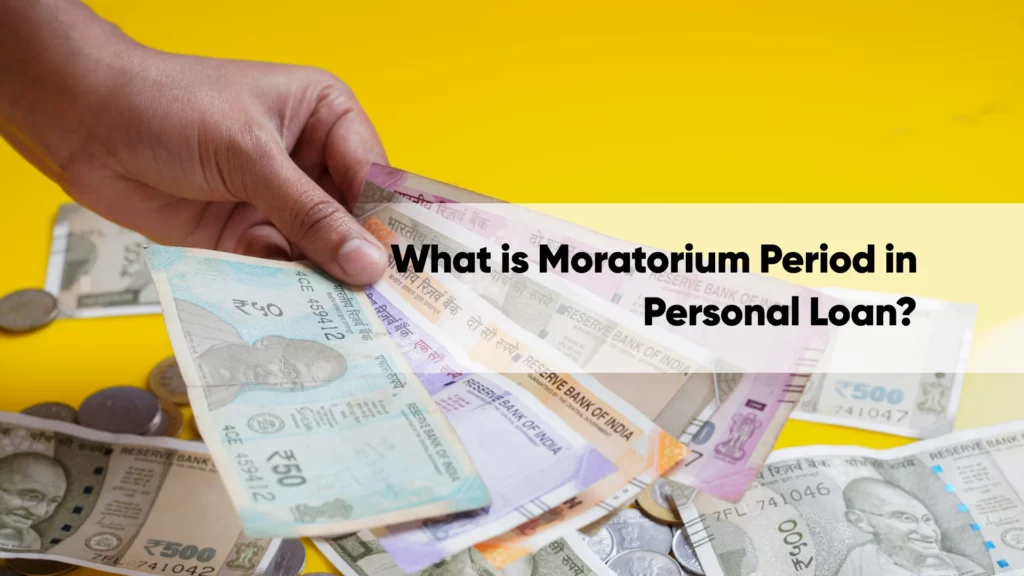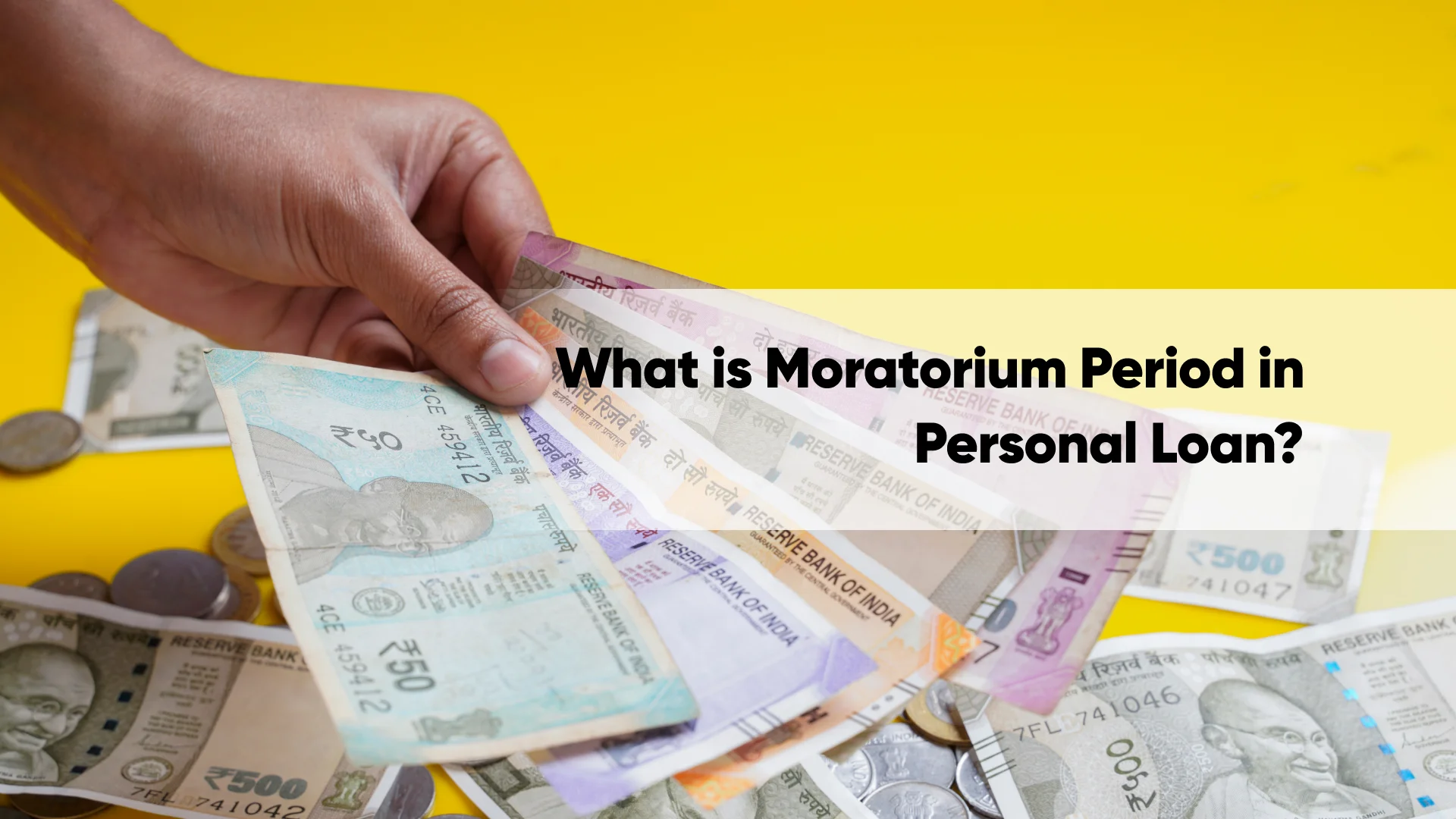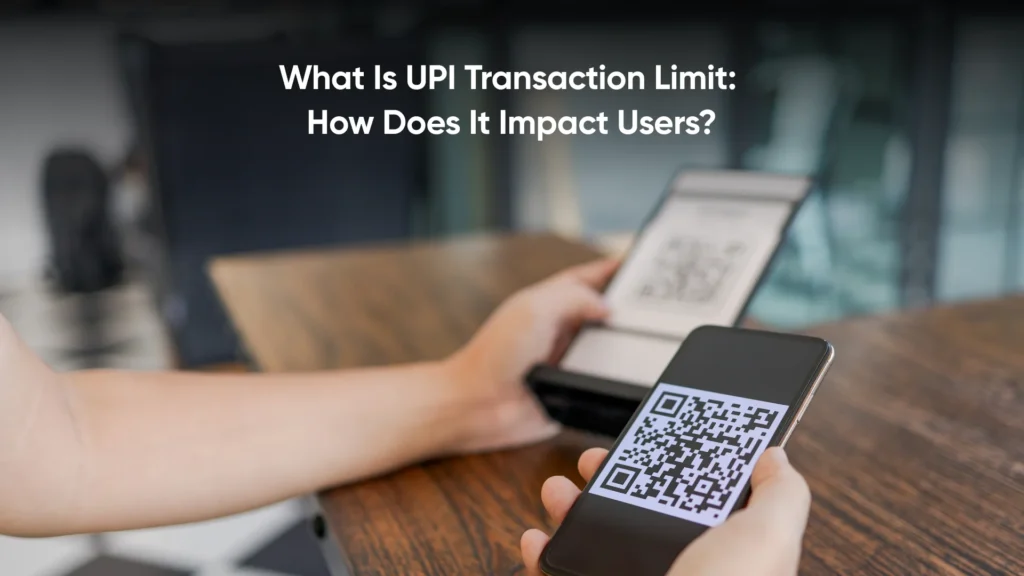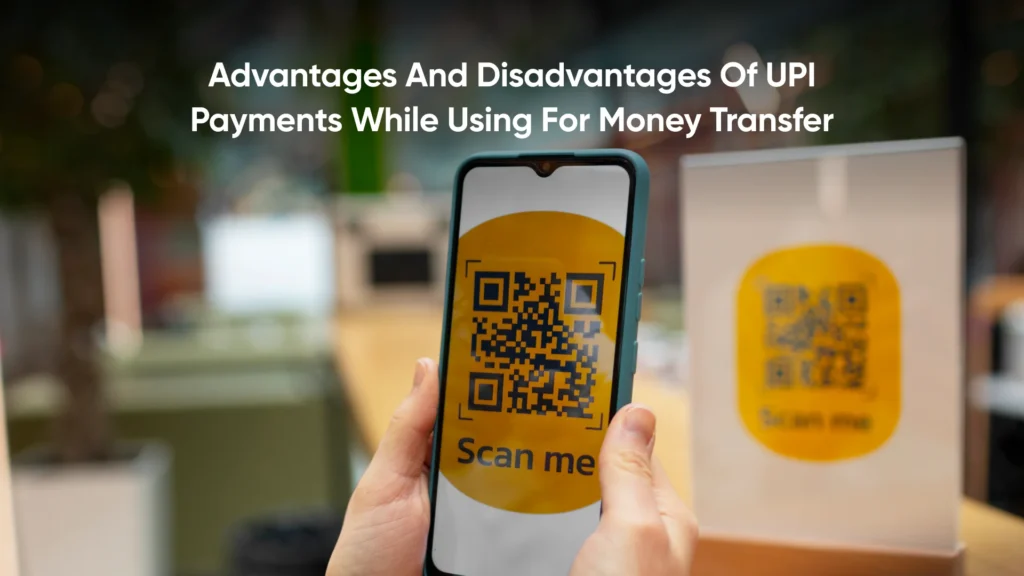What is Moratorium Period in Personal Loan?

Table of Contents
ToggleUnderstanding Moratorium Period in Personal Loan
With the increasing demand for financial solutions that offer flexibility and ease, understanding the concept of a moratorium period in financial products, particularly in personal loans, becomes essential. A moratorium period refers to a specific time frame during a loan’s tenure when the borrower doesn’t need to make any loan repayments.
This period is particularly beneficial in personal loans, offering borrowers a breather during financial hardships or when adjusting to new financial responsibilities. With the evolution of unsecured lending, the inclusion of a moratorium period in personal loan agreements reflects the industry’s shift towards more borrower-friendly practices.
This feature not only increases loan accessibility but also provides a cushion for borrowers to stabilize their financial situation before starting repayments. This makes unsecured personal loans a viable option for immediate financial relief.
What is a Moratorium Period?
A moratorium period is like a break from paying back your loan. It’s there to help you if you’ve taken a personal loan but need some time before you start paying it back. This is really helpful for loans where you don’t need to provide security, called unsecured personal loans. This is great for managing your money better during tough times or when you’re just starting a new job or business.
This concept also applies to education loans, which give students time to finish their studies and start working before they need to start repayments. In India, being able to take up a loan of up to 5 lakh without worrying about immediate repayments can be a big help. Knowing you have a moratorium period where you don’t need to pay right away makes borrowing money less stressful.
How Does the Moratorium Period Work in Personal Loans?
In a personal loan, the moratorium period functions as a crucial phase where borrowers are granted a temporary halt from making repayments. During this interval, individuals are not required to pay any part of the principal or interest, offering a much-needed respite for financial planning and adjustment.
Consider someone who has secured a 5 lakh personal loan. The inclusion of a moratorium period in this scenario provides them with a window where the financial pressure of repayments is lifted. This allows them to allocate funds towards other pressing needs or to simply stabilize their economic situation. This aspect of a personal loan highlights the flexibility and borrower-friendly nature of such financial products, making them more accessible and manageable.
Eligibility for Moratorium Period in Personal Loan
Eligibility criteria for a moratorium period in personal loan typically include:
Credit History: Lenders often evaluate the borrower’s credit score to determine eligibility. A good credit score may increase the chances of being granted a moratorium period.
Income Stability: Regular and stable income can be a crucial factor, as it assures lenders of the borrower’s capability to resume payments after the moratorium period.
Loan Purpose: The reason for taking out the personal loan may also influence the lender’s decision. Some purposes might be deemed more eligible for a moratorium than others.
Existing Relationship: Borrowers with a prior relationship with the lender, such as existing accounts or previous loans, might find it easier to qualify for a moratorium period.
Specific Lender Policies: Every financial institution has its own set of rules for a moratorium period on loan. It’s important for borrowers to check these specifics before applying.
Loan Type: While moratorium periods are common in education loans, signified by the moratorium period meaning in education loans, they may not be as straightforward in personal loans. The difference types of loan can affect eligibility.
How will Interest be Calculated on My Loan during the Moratorium Period?
During the moratorium period in a personal loan, interest does not stop accumulating. Instead, the interest on your loan continues to add up, even when you’re not making any payments. This applies to unsecured personal loans and when you take an instant personal loan online. The method of interest calculation during the moratorium can vary between lenders but generally, it’s compounded monthly. This means the interest that accumulates during the moratorium period itself earns interest. This is different from the moratorium period meaning in education loans, where sometimes the interest calculation can be more favorable to the borrower, considering their future earning potential.
It’s important for borrowers to understand how this interest will affect their total personal loan repayment amount. Although a moratorium period offers temporary relief from payments, the accrued interest can increase the overall cost of the loan, affecting how much you will need to repay after the moratorium ends.
Benefits of Opting for a Moratorium Period
Opting for a moratorium period on a personal loan offers several benefits:
Financial Relief: It provides temporary relief from loan repayments, allowing borrowers to manage sudden financial challenges or allocate resources to other immediate needs.
Cash Flow Management: For individuals facing a short-term cash flow issue, a moratorium period can help manage finances without the added pressure of immediate repayments.
Prevent Default: By allowing borrowers time to stabilize their finances, the moratorium period can help prevent the risk of defaulting on the loan.
Planning and Restructuring: Borrowers can use this period to plan their financial future, possibly restructuring their finances to better accommodate the loan repayment once the moratorium ends.
Support During Uncertainty: Especially relevant in unpredictable times, such as job loss or during education (reflected in the moratorium period meaning in education loan), it offers critical support.
Accessibility to Funds: For those seeking an instant personal loan online or an unsecured personal loan, knowing there’s a possibility to pause repayments can make accessing funds more appealing.
Drawbacks of Availing of a Moratorium Period
While the moratorium period in a personal loan can offer relief, there are also some drawbacks to consider:
Increased Interest: Interest continues to accumulate during the moratorium period, which can significantly increase the total amount payable over the loan’s tenure. This means that even though you’re not making payments, the cost of your loan could go up.
Longer Loan Tenure: To accommodate the unpaid interest from the moratorium period, lenders may extend the loan’s tenure, resulting in a longer repayment period.
Higher Repayments Post-Moratorium: Once the moratorium period ends, the monthly repayments could be higher than initially planned, to cover the accrued interest.
Impact on Credit Score: Depending on the lender’s policies, availing of a moratorium period might be reported to credit bureaus and could potentially impact your credit score, especially if not managed properly.
False Sense of Financial Security: The temporary relief might lead to a false sense of security, causing borrowers to overlook the importance of creating a long-term financial plan to manage their debts by debt consolidation loan.
Impact of Moratorium Period on Personal Loan Repayment
Opting for a moratorium period on a personal loan affects your repayment strategy significantly. Initially, it might seem like a boon, especially when facing financial constraints, as it allows for a pause in repayments. This feature is designed to provide temporary relief.
However, it’s important to consider the long-term implications. During the moratorium, interest continues to accumulate on your loan amount, such as a 5 lakh personal loan, which ultimately increases the total cost of your loan. To accommodate this added cost without drastically increasing your monthly repayment amount, lenders may extend the tenure of your loan.
Consequently, once the moratorium period concludes, you might find yourself facing higher monthly payments than initially planned. This adjustment necessitates a reevaluation of your budget, posing a challenge to effectively manage your finances while ensuring you can meet the new repayment terms. Understanding these impacts is crucial for borrowers considering a moratorium to make informed decisions that align with their financial planning and long-term fiscal health.
What Should Borrowers Consider Before Opting For a Moratorium Period?
Before considering a moratorium period in a personal loan, it’s crucial for borrowers to grasp the concept of interest accumulation. This is because interest continues to build up during the moratorium period, potentially increasing the overall cost of your loan.
Calculating the additional interest you’ll end up paying is essential to evaluating whether the temporary relief is worth the long-term cost.
Furthermore, it’s important to have a robust plan in place to resume payments after the moratorium period. This is particularly crucial if you’re opting for a moratorium on an unsecured personal loan planning is vital to prevent further financial strain once the moratorium ends.
It’s also worth considering the potential indirect effects on your credit score. While a moratorium period might not have a direct impact on your credit score, the increased loan balance and potential extension of the loan term could have indirect effects. This is an important aspect to reflect on when considering a moratorium period.
Lastly, explore other options. Sometimes, lenders offer alternative solutions that might be more suitable for your situation, such as loan restructuring. Carefully weigh the pros and cons of a moratorium against these alternatives to make an informed decision that aligns with your financial goals and capabilities.
Process for Requesting a Moratorium Period
Requesting a moratorium period for your personal loan involves a straightforward process, but the specific steps can vary slightly between lenders. The first step is to contact your lender directly. This could be through their customer service, or via an online portal.
Most lenders require a formal request for a moratorium period, either through a written application or an online form submission. In this request, you’ll likely need to explain your reason for needing the pause in payments, which could range from financial hardships to temporary income disruptions.
Once you submit your request, the lender will review your application and assess your situation. Approval might depend on your loan’s standing, your repayment history, and the lender’s policy.
Conclusion
Whether it’s managing repayments on an unsecured personal loan or strategizing finances after availing of an instant personal loan online, understanding the implications of a moratorium can be crucial. As the financial market continues to adapt, the option of a moratorium provides a lifeline during uncertainties, but it also emphasizes the need for borrowers to plan judiciously, keeping both their current and future financial health in focus.
Frequently Asked Questions
Yes, personal loans can have a moratorium period. This is a legally authorized period that delays payment due on loan instalments, offering a grace period before repayment begins. Eligibility and terms vary by lender.
Borrowers need to request a moratorium period. The process involves contacting your lender and meeting specific eligibility criteria they set.
Yes, interest continues to accrue on your loan during the moratorium period. This accrued interest is added to the loan amount, potentially increasing the total repayment amount.
Missing payments after the moratorium period can lead to penalties, increased interest rates, and negative impacts on your credit score. It’s important to resume payments as agreed upon with the lender.
The ability to opt for multiple moratorium periods depends on the lender’s policies and the borrower’s specific circumstances.
While most personal loans can include a moratorium period, their availability and terms depend on the lender’s policies and the loan agreement. Not all loan types or lenders may offer this feature.
Typically, a moratorium agreed upon with the lender should not negatively impact your credit score. However, it’s important to confirm this with your lender, as policies can vary.













